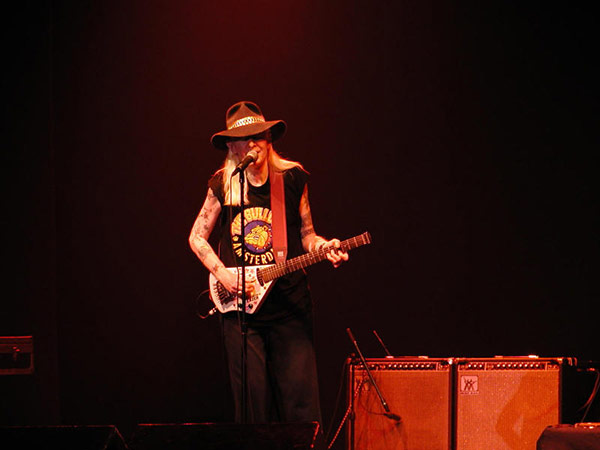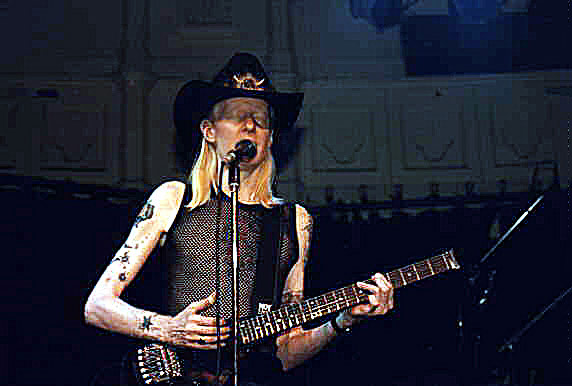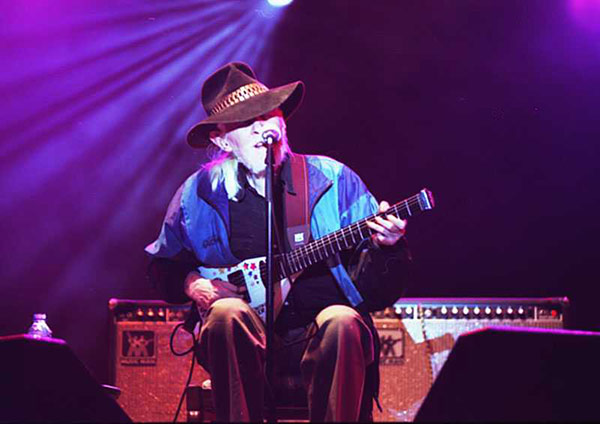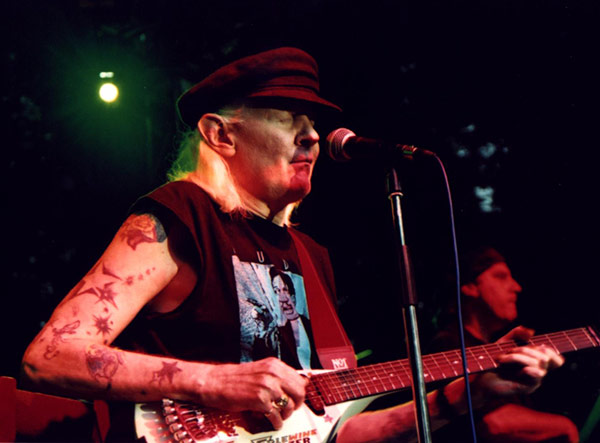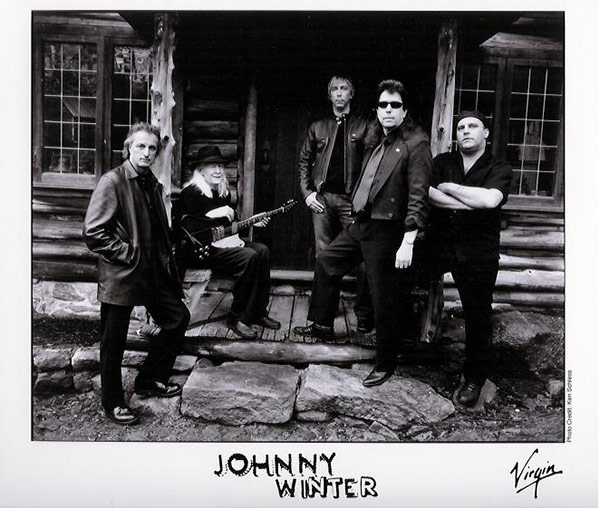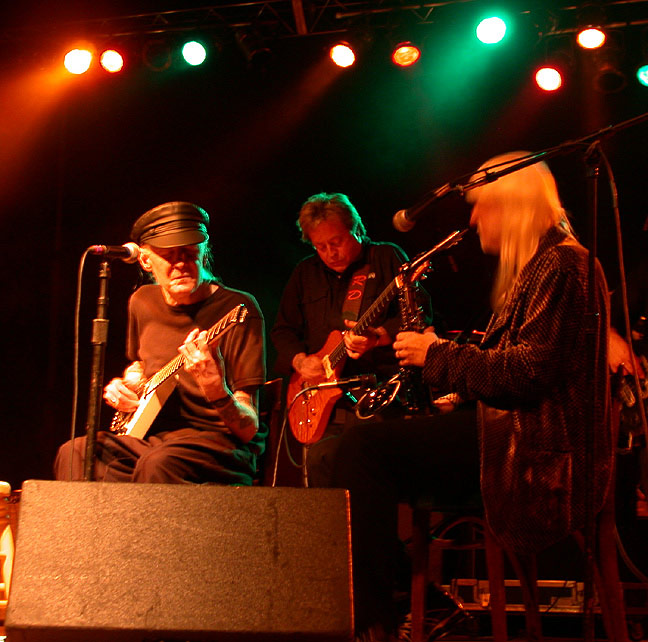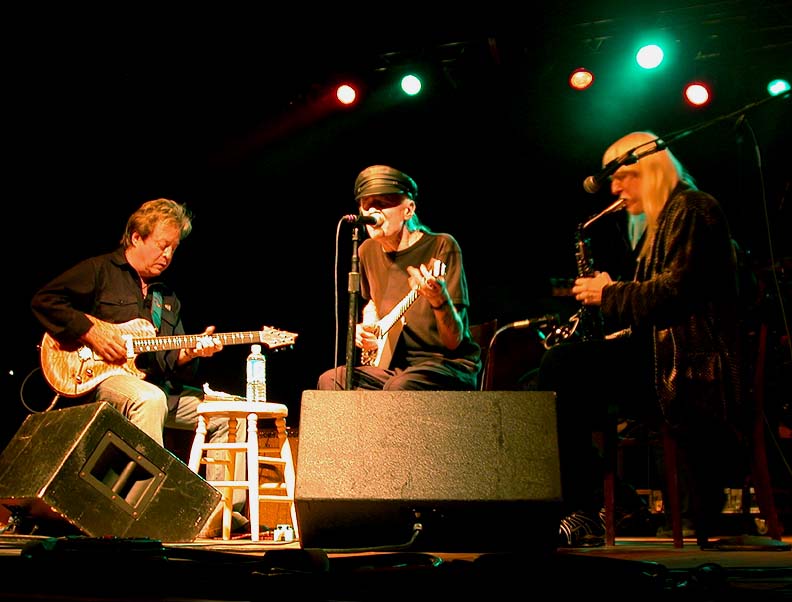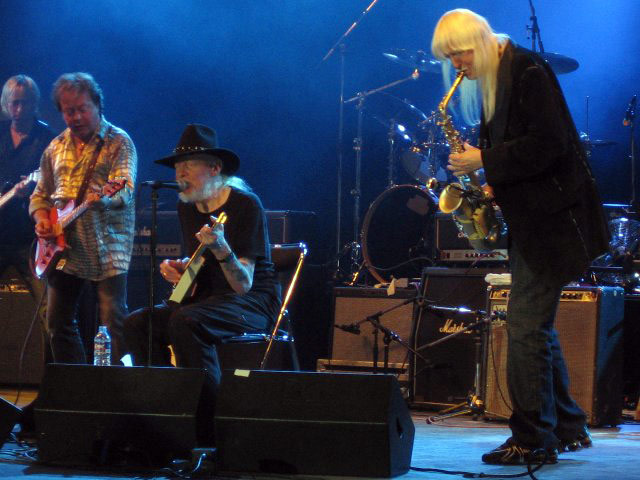Johnny Winter is a legend. Sure, that title gets tossed around in rock and roll like a Frisbee in the park on Sunday, but in this case, it’s an accurate description. From the '60s onward, with landmark albums like Johnny Winter And, The Progressive Blues Experiment, Still Alive and Well, Saints and Sinners, Let Me In, and Captured Live, along with endless touring, Winter captured and kept a loyal audience who, to this day, speak his name with reverence.
We spoke with Johnny by phone, and while this may not be one of the most in-depth interviews we’ve ever done, it is definitely one of the most important because this man is a true rock and blues icon. A guitar slinger admired by players and fans around the world. We feel lucky to have shared a few minutes with Johnny Winter.
Thanks for speaking with us, Johnny. It's really a pleasure.
The pleasure is mine.
How have you been doing since your hip surgery?
Pretty well. I've just about recuperated, but I still get a little sore once in a while. But I'm doing pretty good.
How was your recent European tour?
It went real well. We always like playing Europe.
How would you compare audiences in Europe to those in the USA?
Well, there's not a lot of difference. But it seems like the European fans are a little more tuned into the blues. It seems like the blues are bigger over there. There's just a larger audience for it over there, I believe.
What's your favorite place to play in Europe?
I don't know. I like a lot of it, but Copenhagen was real nice. And I like Stockholm.
I hear you are working on a new album. How's that coming along?
Yes. We've got two tracks finished. We have most of the material chosen for the rest of it. There are two new songs on the record, written by a guy named Tom Hambridge. There's also a T-Bone Walker song and a Magic Sam song. I think they are planning on putting it out the second week of January.
We certainly look forward to it. We really enjoyed the new video compilation you have out, Pieces and Bits. Do you have more material that you plan to put out later?
I don't think so. I think we used just about everything that we had, but you never can tell. Sometimes stuff comes up, and you might run into some more material on the road.
I've always loved the rock albums you did in the past, especially Still Alive and Well and Saints & Sinners. What drives you to do primarily blues instead of rock and roll?
I just seem to like playing the blues better. It's what I love. Some of the old style rock and roll I like a lot too, though.
Speaking of the blues, the world just lost a great one in John Lee Hooker. I wonder if you'd share your thoughts on John Lee?
Oh, yeah. He lived a good long life, and it seems he said everything that he had to say. It was a shame to see him have to go, though. There will never be another one like him.
Who were your major influences in music? Who made you want to get out there and play?
Oh man. I listened to every blues record I could find, you know? I bought every blues record I could find. It wasn't just a couple of people that I liked a lot, it was the blues in general. People like Muddy Waters, of course, he was one of my favorites. And Robert Johnson, and Little Walter. Those were some of my favorites. Bobby Bland was great too.
How do you feel about the state of blues music in the 21st century? There seems to be a resurgence with artists like Jonny Lang and Susan Tedeschi.
Yeah, there are a lot of good young people coming up. I think it continues to thrive and grow. I don't think the blues will ever die, but I don't think there will ever be any more like Muddy Waters or Howlin' Wolf. The ones that are gone—it'd be pretty hard to find people to replace them.
I loved the records you did with Muddy Waters. What was he like as a person?
He was a great guy. He was like a father figure to me. One of the high points of my career was working with Muddy.
Do you think you'll do any more work with your brother Edgar anytime soon?
I don't know. I might use him on this album. I might have him come in and do some keyboards. I don't know yet. I don't know how he's doing on time—if he's got time to do it.
When you listen to music yourself, do you listen strictly to blues, or do you listen to other stuff too?
Mostly blues. I like Dr. John a whole lot. He's pretty bluesy, but he does some rock and roll too. I don't listen to much of the new music. I like the old stuff better.
The new Double Trouble record is really good. Do you think you'll ever play with Tommy Shannon again, or Uncle John Turner?
Yeah. They're both pretty busy right now. The last time I played with them was on the Alligator Records. They played on four cuts on the last Alligator record that I did.
A lot of that was just reissued on a double-disc compilation.
Yeah.
What's next on your agenda, Johnny?
Well, the new album is the main thing I'm doing right now. And we're gonna keep touring too. So, with touring and making a record, I'm gonna be pretty busy.
Thanks for your time, and thank you for all the great music all these years.
